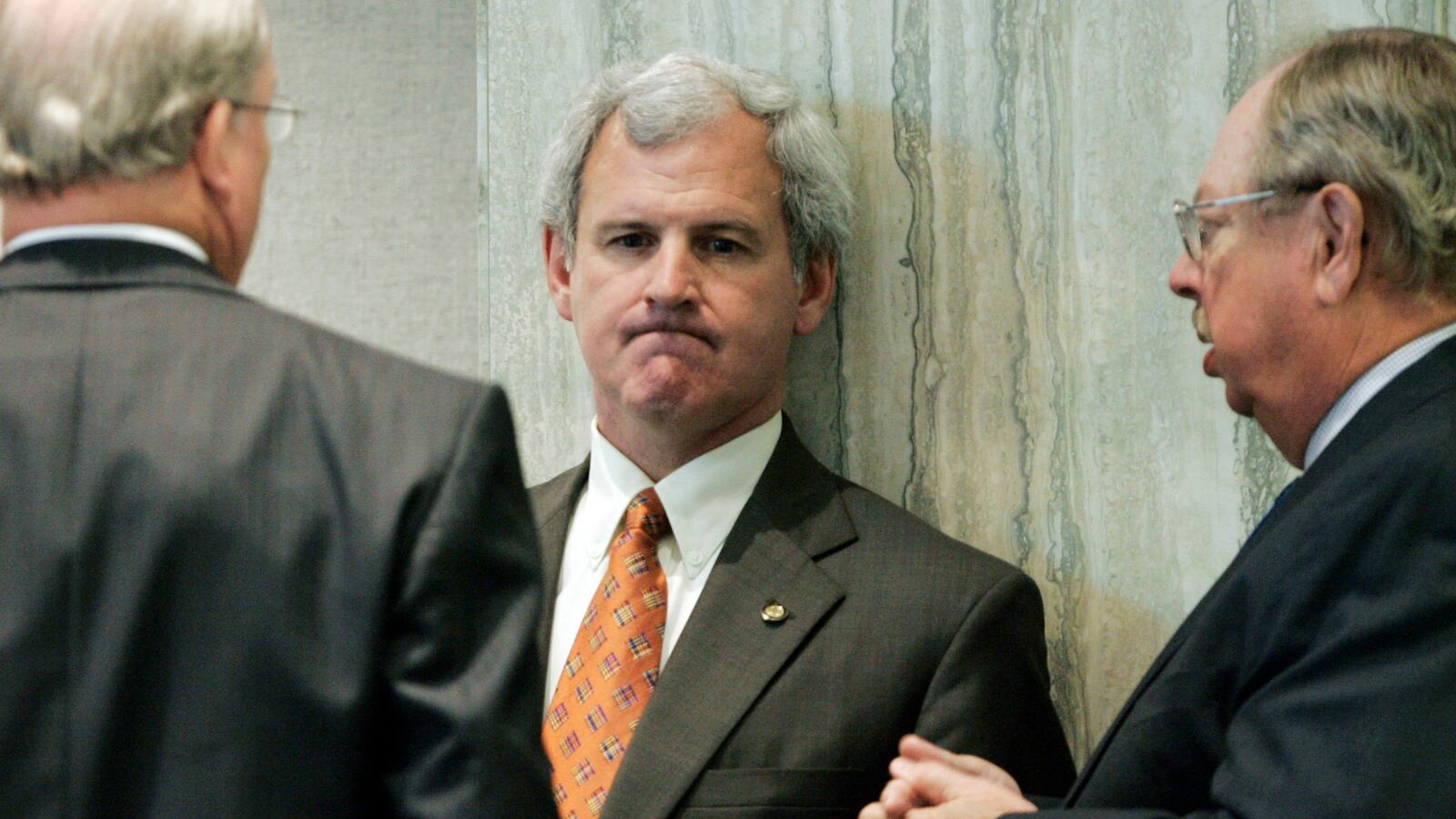There’s a must-watch Republican runoff election this week in Alabama, but it’s not the typical fight between the establishment and the Tea Party.
In the race to be the GOP nominee in Alabama’s 1st Congressional District—tantamount to election in this deep red district—both candidates are staunchly conservative. Both the establishment and Tea Party candidate would have voted against the deal to end the government shutdown, and both view Obamacare as a grave threat to America.

Instead, the divide is about what tactics Republican activists think will be most successful as the next budget showdown looms. Do they want a firebrand who believes Barack Obama was born in Kenya or a political veteran who emphasizes the need “to work with people, in Washington and at home”? Their answer may influence the GOP’s strategy on Capitol Hill in the months to come.
Bradley Byrne is an old political hand. He’s a former state senator and member of the state board of education who narrowly lost the 2010 Republican nomination to be governor. Christianity has always been a strong part of his platform; he has said, “my faith in Christ is my foundation” and has insisted that every word in the Bible is true. He derides the “corrupt” IRS on his website and is backed by the NRA, the Chamber of Commerce, and Ending Spending, the super PAC largely funded by Joe Ricketts, the billionaire who considered running ads against Obama in 2012 that focused on his connection to Jeremiah Wright.
But Byrne might lose because he’s not conservative enough.
He is in a dead heat with conservative activist and businessman Dean Young in the runoff election triggered when incumbent Rep. Jo Bonner (R-AL) resigned to take a position with the University of Alabama. Young is an ardent social conservative and frequent candidate who has stated that Obama was born in Kenya and that “Homosexuality is wrong, and that is just the way it is. Always has been, always will be.” Young has attacked Byrne as “country club Republican” who has flip-flopped on his belief in the literal truth of the Bible.
In the September primary, vying against three other major candidates, Byrne received almost 35 percent of the vote, while Young finished second with 23 percent. Byrne was running as the establishment favorite, though with some baggage. He was a registered Democrat until 1997—although that’s not terribly unusual in a state where many conservatives hung on to their traditional party affiliation well into the Clinton administration—and while serving in the state Senate once voted to allow a referendum that would raise taxes.
But these heresies haven’t drawn the ire of the usual conservative players in Republican primaries such as the Club for Growth. Those groups have stood down, seeing no advantage to getting involved.
Overall, the outside money and endorsements have favored Byrne. The U.S. Chamber of Commerce has spent more than $200,000 on Byrne’s behalf and another group, Ending Spending, is running an ad that labels Byrne a “true Alabama conservative.” Young’s response to the chamber’s involvement was to slam the pro-business lobbying group for its support of immigration reform and use of federal funds to clean up the Gulf of Mexico after the BP oil spill.
The only PAC that has spent on Young’s behalf is a fringier group called Our Voice PAC, run by Sharron Angle, the unsuccessful Nevada Senate candidate who lost to Majority Leader Harry Reid in 2010. The archconservative told The Guardian recently that he felt “abandoned” by outside conservative groups and has resorted to calling television stations to ask if any ad buys have been placed on his behalf.
Young has been endorsed by Mark Levin and Erick Erickson. But those likely pale in comparison to the endorsements Byrne has received from the two Republican congressmen who previously held the congressional seat, as well as several of his opponents in the primary.
Turnout is expected to be low on Tuesday. After all, the race is a runoff primary in an odd-year special election. That means a candidate with a dedicated base of support like Young can pull out a win despite being heavily outspent. But at this point, the campaign isn’t about policy—it’s about style.
If Young is elected, he’ll likely be a bomb thrower who will instantly become one of the most quotable Republicans in the House, along with Louie Gohmert and Steve King. Young’s already drawn national attention for saying he represents the “pitchfork people” and for the Obama Kenyan-birth allegation. In contrast, Byrne would be an identikit Republican congressman, one of dozens in the House with white hair, white skin, and a soft Southern accent. He’s not likely to buck the party line or rock the boat. Instead, he’d probably just be a regular politician for all that entails, both good and bad.





